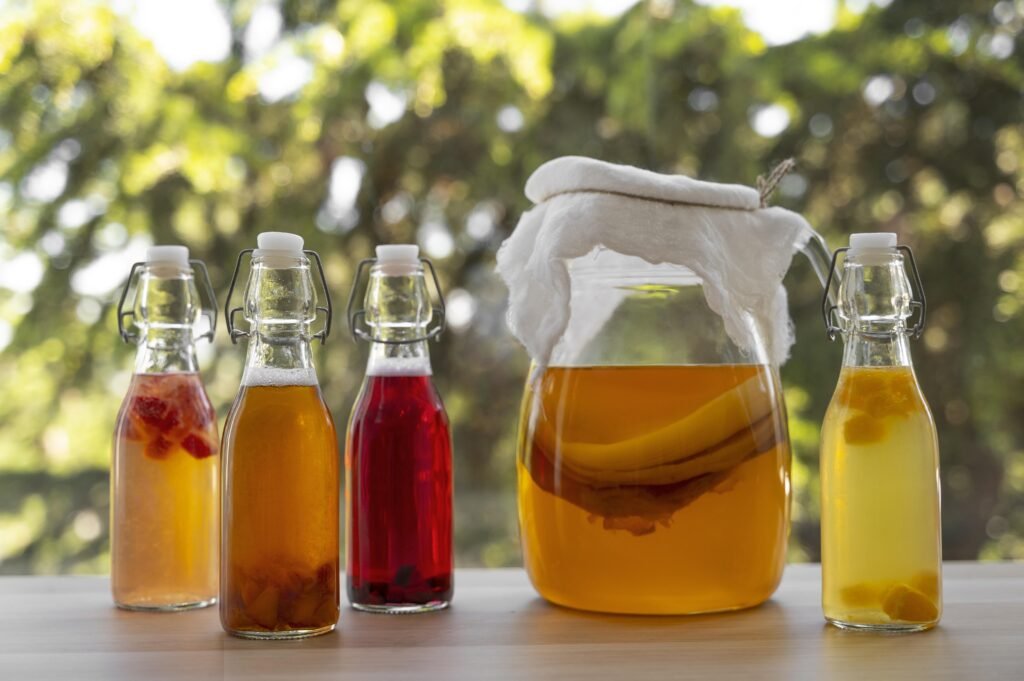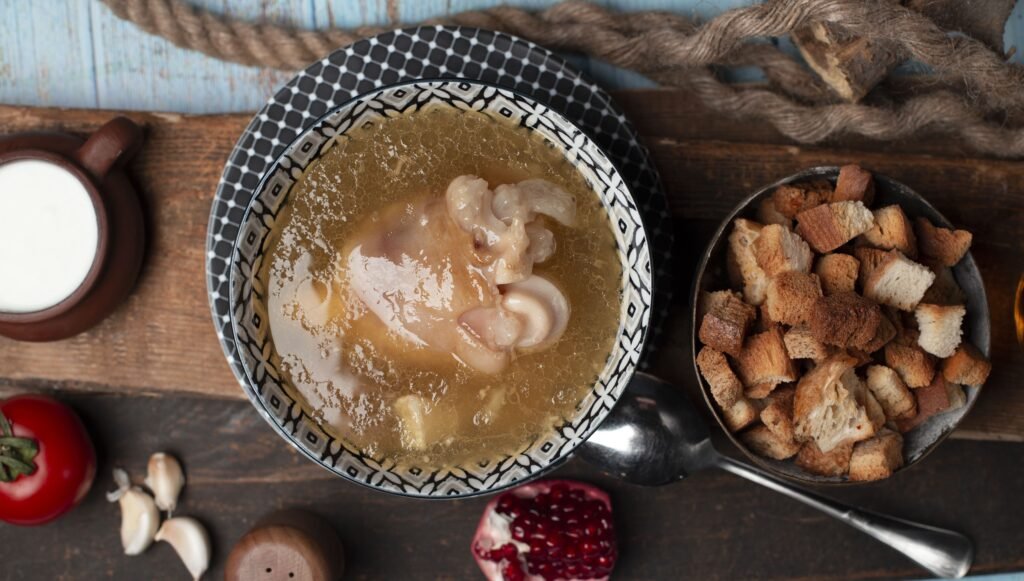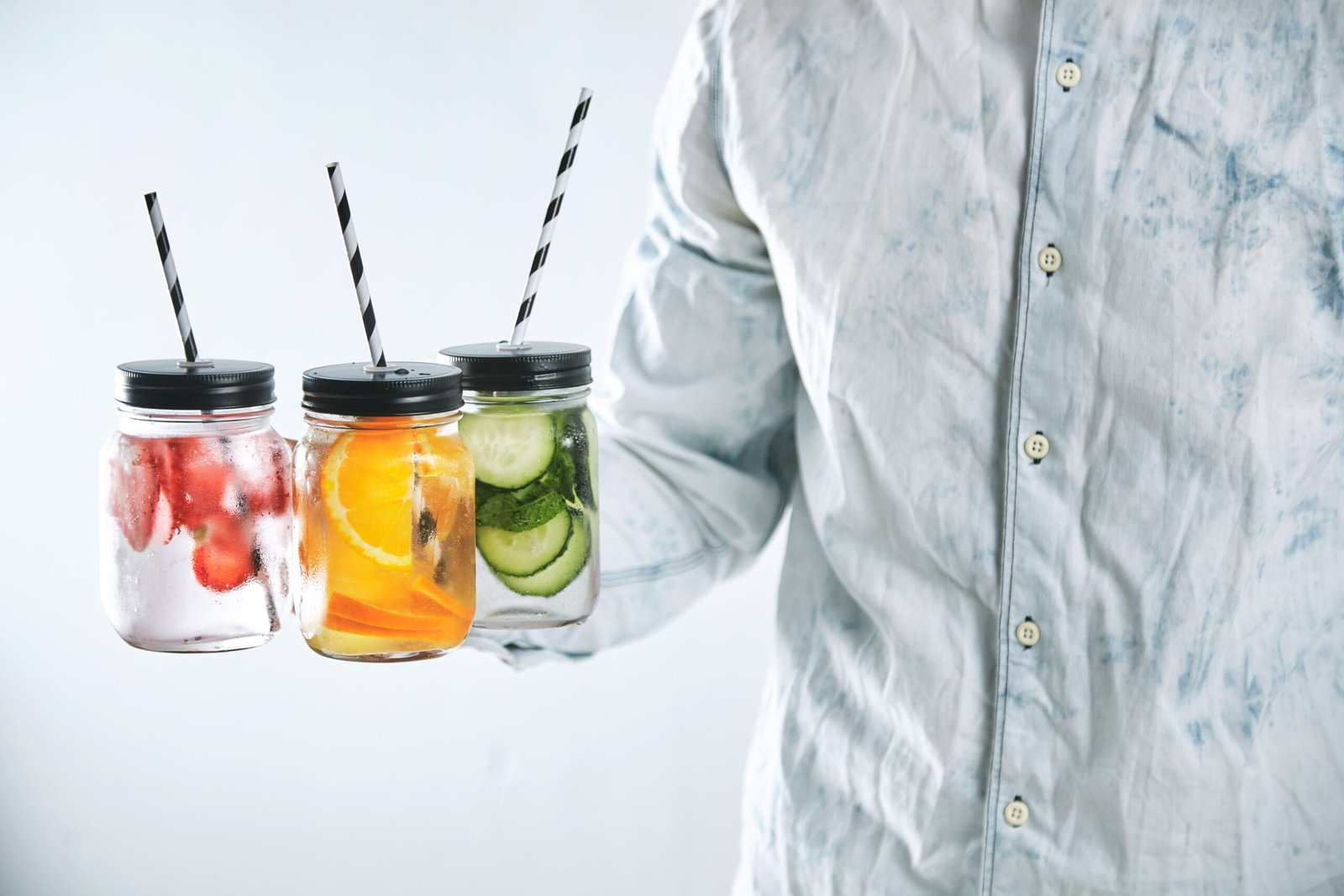Maintaining a healthy gut is one of the most important things you can do for your overall well-being. Your digestive system is the foundation of your immune health, mental clarity, nutrient absorption, and even your mood. What you drink plays just as crucial a role as what you eat when it comes to keeping your gut in balance. Some drinks nourish and support a thriving gut microbiome, while others can disrupt the delicate ecosystem inside you.
In this comprehensive guide, we’ll explore both sides of the spectrum—drinks that heal your gut and drinks that hurt your gut—so you can make smarter choices every day. We’ll dig into the science, practical tips, recipes, and even personal reflections on how beverages impact digestion, immunity, and long-term health.
Table of Contents
Why Gut Health Matters
Your gut is home to trillions of bacteria, fungi, and microbes collectively known as the gut microbiome. These microorganisms help:
- Break down food and absorb nutrients.
- Regulate the immune system.
- Protect against harmful bacteria.
- Communicate with the brain through the gut-brain axis.
A 2020 study published in Nature Reviews Gastroenterology & Hepatology revealed that an imbalanced gut microbiome has been linked to conditions like irritable bowel syndrome (IBS), inflammatory bowel disease (IBD), obesity, and even depression. This highlights how gut health extends far beyond digestion—it’s tied to nearly every aspect of our well-being.
When your gut microbiome is healthy and balanced, you feel more energized, focused, and resilient. But when it’s disrupted by poor diet, stress, or harmful drinks, you may experience bloating, fatigue, inflammation, or even chronic health issues. That’s why choosing the right drinks for gut health can make a massive difference in how you feel every day.
Drinks That Heal the Gut
Let’s start with the beverages that truly nourish your gut microbiome, reduce inflammation, and promote better digestion.
1. Kombucha

Kombucha is a fermented tea packed with probiotics—live beneficial bacteria that help diversify and strengthen your gut microbiome. Regular consumption has been linked to improved digestion, reduced bloating, and better immune function.
Science Insight: According to a 2019 review in Food Bioscience, kombucha contains acetic acid, gluconic acid, and probiotics that regulate gut pH and prevent harmful bacteria from flourishing.
Tip: Choose kombucha with low sugar content to maximize benefits and minimize unnecessary calories.
DIY Recipe:
- Brew black or green tea.
- Add sugar and a SCOBY (symbiotic culture of bacteria and yeast).
- Ferment for 7–10 days.
- Flavor with ginger, lemon, or berries.
2. Kefir
Kefir is a fermented milk or water-based drink that contains multiple strains of probiotics. It’s richer in probiotics than yogurt, making it especially powerful for gut repair. Plus, kefir helps reduce lactose intolerance symptoms due to the presence of lactase-producing bacteria.
Science Insight: Research published in Frontiers in Microbiology (2020) found that kefir improves gut barrier integrity and boosts immune response.
Ways to Enjoy Kefir:
- Blend with fruits for a probiotic smoothie.
- Use as a base for salad dressings.
- Drink plain before meals to aid digestion.
3. Bone Broth

Bone broth is rich in collagen, amino acids (like glutamine), and minerals that help repair the gut lining. It’s often recommended for people with leaky gut syndrome or digestive inflammation.
Science Insight: Glutamine, found in bone broth, has been shown to reduce intestinal permeability, a key factor in leaky gut.
Homemade Bone Broth Recipe:
- Simmer chicken or beef bones with apple cider vinegar, carrots, celery, onion, and garlic for 12–24 hours.
- Strain and store.
- Sip warm or use as a base for soups.
4. Herbal Teas
Certain herbal teas such as ginger tea, peppermint tea, and chamomile tea are soothing for digestion. They reduce bloating, gas, and stomach discomfort while also calming inflammation in the gut.
- Ginger tea: Stimulates digestion and reduces nausea.
- Peppermint tea: Relaxes intestinal muscles and relieves IBS symptoms.
- Chamomile tea: Reduces gut inflammation and promotes relaxation.
5. Aloe Vera Juice
Aloe vera juice has natural anti-inflammatory properties and helps soothe the digestive tract. It can improve bowel movements and support nutrient absorption.
Tip: Always opt for food-grade aloe vera juice with no added sugars.
6. Water (Plain and Infused)
Hydration is key to digestive health. Drinking enough water keeps food moving through your digestive system and prevents constipation. Adding lemon, cucumber, or mint can provide antioxidants while making hydration more enjoyable.
Science Insight: Dehydration slows digestion and can cause harmful bacteria to overgrow in the gut.
7. Apple Cider Vinegar (Diluted)
When consumed in moderation, diluted apple cider vinegar helps increase stomach acidity, which can improve digestion and nutrient absorption. It also supports healthy gut bacteria.
Simple Recipe:
- Mix 1–2 teaspoons of apple cider vinegar in a glass of warm water.
- Drink before meals to aid digestion.
Drinks That Hurt the Gut
On the flip side, some drinks disrupt the microbiome, cause inflammation, and contribute to digestive issues. Being aware of them can help you make informed choices.
1. Sugary Sodas
Sodas are loaded with refined sugar, which feeds harmful gut bacteria and yeast. Excessive sugar can reduce microbial diversity, leading to bloating, weight gain, and insulin resistance.
Science Insight: A 2020 study in Cell Metabolism found that high sugar intake reduces gut microbial diversity and promotes inflammation.
2. Alcohol

While occasional red wine may have some polyphenol benefits, excessive alcohol disrupts the gut lining, kills beneficial bacteria, and promotes inflammation. Beer and sugary cocktails are particularly harmful.
Science Insight: Alcohol increases intestinal permeability, often referred to as “leaky gut,” which allows toxins to enter the bloodstream.
3. Energy Drinks
Energy drinks are high in sugar, caffeine, and artificial additives. They overstimulate the nervous system and disrupt gut function, often leading to stomach cramps, diarrhea, or gut imbalance.
4. Artificially Sweetened Beverages
Diet sodas and “sugar-free” drinks often contain artificial sweeteners like aspartame and sucralose, which have been shown to negatively affect gut bacteria.
Science Insight: A 2019 study in Nature revealed that artificial sweeteners disrupt the gut microbiota, leading to glucose intolerance.
5. Excessive Coffee

Coffee in moderation may support digestion, but too much caffeine can irritate the gut lining, cause acid reflux, and overstimulate bowel movements. Stick to 1–2 cups a day.
6. Processed Fruit Juices
While fresh-pressed juices can be healthy, packaged juices often contain added sugars and preservatives. These increase inflammation and reduce microbial diversity.
Healthier Alternative: Make your own juices using a slow juicer and drink them fresh.
Balancing Healing and Harmful Drinks
Here’s the good news: you don’t have to completely give up your favorite drinks. The key is moderation and balance. For instance, if you enjoy coffee, pair it with gut-friendly options like kefir or bone broth during the day. If you have an occasional soda or cocktail, make sure your daily staples include probiotic-rich beverages.
Practical Rule of Thumb: For every harmful drink, balance it with 2–3 gut-healing drinks throughout the day.
Personal Reflection: My Gut Health Journey
I used to drink soda daily and rely on energy drinks to get through work. Over time, I noticed constant bloating, brain fog, and fatigue. Switching to herbal teas, kombucha, and infused water was life-changing. Within weeks, my digestion improved, and I felt more energized and focused.
The biggest lesson I learned: your gut truly reflects what you drink and eat. It’s not about perfection, but about consistency in choosing gut-healing drinks over harmful ones.
Practical Tips for Choosing Gut-Friendly Drinks
Choosing gut-friendly drinks isn’t just about avoiding sodas and alcohol. It’s about making small, consistent changes that support your microbiome daily. Here are expanded strategies to help you make the best choices:
- Read Labels Thoroughly: Don’t just look at the front packaging. Check the nutrition facts and ingredient list for added sugars, artificial sweeteners, preservatives, or gums that can irritate the gut.
- Prioritize Whole Ingredients: Drinks made with whole, natural ingredients—like fresh fruits, vegetables, or herbs—are easier on digestion and provide essential nutrients.
- Homemade is Best: Preparing your own smoothies, infused waters, kombucha, or kefir ensures you control the quality and avoid hidden additives.
- Stay Hydrated Consistently: Aim to sip water throughout the day rather than drinking large amounts all at once. Consistent hydration supports digestion, nutrient transport, and regular bowel movements.
- Rotate Probiotic Drinks: Variety helps cultivate a diverse microbiome. Alternate between kefir, kombucha, lassi, and fermented teas to maximize the benefits of different probiotic strains.
- Balance with Meals: Some gut-healing drinks are best consumed with food (like kefir or bone broth), while others (like herbal teas) work well between meals to soothe the stomach.
- Limit Harmful Add-Ons: Avoid adding excessive sugar, creamers, or syrups to your drinks. These can cancel out the benefits of otherwise healthy beverages.
- Listen to Your Gut: Your body is the best guide. If you notice bloating, discomfort, or fatigue after drinking something—even if it’s considered “healthy”—it may not suit your unique microbiome.
- Start Slow with Fermented Drinks: If you’re new to probiotics, introduce them gradually to prevent bloating or discomfort as your gut adjusts.
- Incorporate Seasonal and Regional Options: Choose drinks that align with local traditions and seasonal produce. This not only supports digestion but also adds cultural diversity to your diet.
By following these practical steps, you’ll create a sustainable habit of choosing gut-friendly drink
Conclusion
Your gut health is shaped by the choices you make every day, and the drinks you consume play a bigger role than most people realize. Healing beverages like kefir, kombucha, herbal teas, bone broth, and clean water feed your microbiome, repair your gut lining, and boost overall vitality. In contrast, sodas, artificial sweeteners, excess alcohol, and overly processed drinks slowly chip away at this delicate balance.
The power to transform your digestion, energy, and even mood lies in something as simple as what you sip. By making mindful choices—favoring gut-friendly drinks and moderating the harmful ones—you create a foundation for lasting health. Every glass is an opportunity: you can either fuel inflammation or nurture resilience. Choose wisely, and your gut will reward you with strength, clarity, and long-term well-being.
Frequently Asked Questions About Drinks for Gut Health
1. What are the best drinks to improve gut health fast?
Fermented drinks like kefir, kombucha, and lassi work quickly because they introduce live probiotics into the gut. Bone broth and herbal teas also provide soothing benefits and help repair the gut lining.
2. Can lemon water help with gut health?
Yes, warm lemon water in the morning stimulates digestion, balances stomach acidity, and supports hydration, which is crucial for smooth bowel movements.
3. Is coffee bad for gut health?
In moderation, coffee can promote healthy bowel movements and provide antioxidants. However, drinking too much may irritate the gut lining, worsen acid reflux, or cause bloating.
4. Which drinks reduce bloating?
Herbal teas such as peppermint, ginger, and chamomile, as well as probiotic-rich kefir and kombucha, are excellent for reducing bloating and gas.
5. Does alcohol always harm gut health?
Occasional moderate red wine may provide polyphenols that support good bacteria, but excessive alcohol disrupts the microbiome, damages the gut lining, and increases inflammation.
6. What smoothies are best for gut health?
Smoothies with high-fiber fruits (berries, bananas, apples), leafy greens, flaxseed, chia seeds, and probiotic bases like kefir or yogurt are best for gut health. Avoid adding refined sugars or syrups.
7. Are probiotic drinks safe for everyone?
For most people, probiotic drinks are safe and beneficial. However, those with compromised immune systems or specific medical conditions should consult a healthcare provider before consuming them regularly.
8. Can green tea improve gut health?
Yes, green tea contains polyphenols and antioxidants that support beneficial bacteria growth and reduce inflammation in the digestive tract.
9. Do artificial sweeteners harm gut bacteria?
Studies suggest artificial sweeteners such as aspartame and sucralose can negatively affect gut microbiota, leading to imbalances and digestive issues.
10. How much water should I drink daily for gut health?
Most adults should aim for 2–3 liters of water daily, depending on activity level and climate. Adequate hydration supports digestion, prevents constipation, and helps maintain a healthy gut environment.
